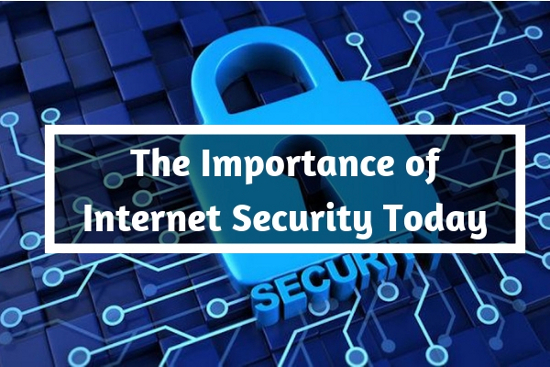Internet security can be defined as a branch of computer science which deals with the security purposes of browser security as well as network security. Firstly, let’s discuss what are the threats over the internet?
There are a large number of threats which can affect your internet, some common threats are:
- Bots: Bots is a collection of software robots, which creates a troupe of infected computer systems which can be remotely accessed by the creator. Bots can spread malware. They can send e-mail which contains viruses.
- Hacking: Hacking can be described as an action taken by someone else to gain unauthorized access to a computer system. It can install a Trojan horse, which can act as a secret door for the hacker for stealing your personal information.
- Phishing: Phishing is also known as “spoofing” is a cybercrime in which the criminal acts as an authorized person and asks you for validate or update your account. They steal your identity and gain access to your credentials (online bank accounts etc.)
- Spam: Spam is a distribution of unsolicited messages and advertisement to your addresses which can be easily found in SNS, personal blogs or company websites. Spam can provide a backdoor for malware, spyware threats to your system. It can create a large number of junk file in your computer.
- Trojan Horses: Trojan horse is an executable file which installs and run itself once it’s downloaded. It can watch you through webcam, can delete your files, can take a screenshot of your username and password, and even use your computer to hack other computers.
- Ransomware: Ransomware is a malware which denies you to access your own system and files and demands money in order to remove the restrictions. Mostly ransomware gets in your computer through malicious attachments or pop-up advertisements. There are commonly two types of ransomware-
- Lockscreen ransomware- It displays an image of your screen which denies you to access your system.
- Encryption ransomware- It encrypts your hard drive, shared network files, USB flash drives or even some cloud storage devices and asks money in order to decrypt your files.
Now how to secure your internet with these threats??
Strong Password: Strong password is the basic entity for security purpose. A password should be strengthening enough that nobody achieves it by guessing. Never put D.O.B or your pet name as a password. Malicious people will easily get you by even by voice phishing. A password should contain a combination of alphanumeric and special characters. With a strong password you should also need a good firewall, webroot antivirus has its one of the top firewall that will help you get your content and data secure, just contact webroot customer service, they will guide you better on what firewall is and how to make your data secure.
Good anti-virus: Anti-virus helps you to prevent, detect and remove malware from your system and network. A good anti-virus can also protect you from Trojan horses, bots, spyware and ransomware. AVG anti-virus is an admirable choice for those purposes. Contact AVG antivirus phone number for some exclusive features of AVG Antivirus. Scan your data and block malware to gain access; it also removes existing viruses from your computer. Anti-viruses are available for many operating systems like Windows OS anti-virus, macOS anti-virus, Android OS anti-virus. Each anti-virus has its own virus detection techniques. It provides you an excellent protection from viruses and identity theft without slowing down your system.
VPN: VPN or Virtual Private Network provides you access streaming service of your choice. VPN provides its own security. It checks all the incoming and outbound data.
Using the internet with some security measures makes it an excellent place to work, share, and gain knowledge.
Related Post: Web Solution Winner




